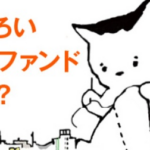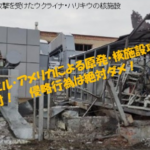Below is my solidarity message to the friends of Jeju Island, Korea, who held the annual gathering to remember the victims of the Nanjing Massacre, at former Alddreau Airfield on December 13.
12月13日は「南京大虐殺を記憶する日」でした。新型コロナウィルスで戦争記憶の集会なども中止や縮小が相次ぐ中、韓国の済州島では、南京大虐殺83年を記憶し、被害者を追悼する集会が、元日本海軍のアルドゥル飛行場の格納庫前で行われました。1937年8月15日から始まった南京空爆の起点の一つであった場所です。過去2年、カナダから連帯メッセージを送りましたが、今年は、日本にいたため、日本からのメッセージとなりました。英語で送ったメッセージを韓国語で読んでもらった映像がここにあります。動画の下に英語版、韓国語版が続きます。英語版には日本語対訳をつけました。
A Solidarity Message to my friends in Jeju 済州島の友たちへ This December marks the 83rd anniversary of the Nanjing Massacre, in which hundreds of thousands of Chinese POWs and civilians were unlawfully and brutally massacred, raped, and deprived, for weeks and months from the beginning of December 1937 till around the end of March 1938 under the occupation of the Imperial Japanese Army. この12月は南京大虐殺の83周年です。1937年12月から翌年の38年の3月にわたり、何十万もの中国の捕虜や民間人が違法に、かつ残虐に、殺害・強姦・略奪の被害を受けました。
In Japan, there have been many commemorations, TV programs and publications to mark the 75th anniversary of the end of the Asia-Pacific War and WWII, but most of them focus on the last stage of the war where people in Japan suffered from the aerial bombings of the country including the atomic bombing of Hiroshima and Nagasaki. People in Japan remember August 6 and 9. Then August 15, the “end of the war” anniversary in which Emperor Hirohito announced his surrender to the Allied Nations on the public radio in Japan. 日本では、アジア太平洋戦争と第二次世界大戦終結75周年を記憶するさまざまな催しがあり、テレビ番組や出版物も多くありましたが、それらのほとんどは、広島長崎の原爆投下を含む、戦争の末期に主に日本の人々が受けた被害に焦点を当てたものでした。
That’s it. Beyond “August 15,” they don’t think about the war any more and just move on with their lives. This is the war memory of the vast majority in Japan, lacking any critical reflection on the over seven decades of colonial rule and imperial expansion of the Empire of Japan against its fellow Asian countries. そして、それで終わってしまうのです。「8月15日」以降は、戦争のことを忘れてしまい日常に戻ってしまうのです。これが大半の日本人の戦争記憶であり、70年余にわたり同じアジアの国々に対し植民地支配と帝国主義的拡大を行った大日本帝国を批判的に振り返ることはありません。
In fact, “August 15” has another significance that most Japanese people don’t know. On August 15, 1937, twenty Mitsubishi G3M bombers (九六式陸上攻撃機)of the Imperial Japanese Navy left the Omura Airfield in Nagasaki, crossed the East China Sea, and attacked Nanjing. According to military historian Maeda Tetsuo, it was the first of such “cross-ocean bombing mission” ever conducted in human history. It was very ironical that Nagasaki, eight years later, became the target of the “cross-ocean bombing mission” conducted by the United States, which was the atomic bombing of the city. 「8月15日」はほとんどの日本人が知らないであろう別の意味もあります。1937年8月15日、日本海軍の20機の九六式陸上攻撃機が長崎の大村海軍航空隊基地から飛び立ち、東シナ海を渡って南京を爆撃しました。軍事評論家の前田哲男氏によると、これが人類史上の「渡洋爆撃」だったということです。この8年後に、長崎が米国によって行われた「渡洋爆撃」、つまり原爆投下の標的になったのは大変皮肉と言える出来事でした。
Again, people in Nagasaki remember August 9 and their suffering from the atomic bomb, but hardly ever remember that Nagasaki was the launching point of the Japanese aggression against Nanjing, months prior to the well-known Nanjing Massacre. People of Jeju have been holding annual memorials for the victims of the Nanjing Massacre just because Alddreu Airfield was also used for the Japanese aerial attacks against Nanjing. Korean people were victims of the Japanese colonial rule then and bore no responsibility for the Japanese war atrocities, but the people of Jeju in the current time still feel their moral obligation to remember the massacre. 上で述べたように、長崎の人も、原爆による被害と原爆投下日の8月9日のことは記憶していますが、よく知られている南京大虐殺が起こる数か月前から始まっていた、日本軍による南京攻撃の起点であったということを記憶する人はほとんどいません。済州島の人たちは、アルドゥル飛行場も日本軍による南京攻撃に使われたことから、毎年南京大虐殺の被害者を追悼する集会を開いています。そもそも韓国人は日本の植民地支配の被害者だったわけですから、日本の戦争犯罪に対し何の責任もありません。それなのに、現在の済州島の人たちが、この大虐殺事件を記憶する道徳的責任を感じているのです。
I think people in Nagasaki, and all across Japan, should humbly learn from this example of highest moral practice. You have my highest respect. I wish I were in Jeju with you to commemorate the 83rd anniversary together. Instead, allow me to extend my heart, and send my sincere solidarity message from Tokyo, across the East Sea, to Jeju Island. 長崎、そして日本全土の人々は、この最も高潔な行為から謙虚に学ぶべきと思います。私はみなさんに最大の敬意を表したいです。この83年の記念日を、済州島でみなさんと共に迎えることができたらどんなによかったかと思います。しかしそれはできないので、替りに、東海を超えてみなさんに思いを馳せ、心からの連帯のメッセージを送りたいと思います。 December 6, 2020 Satoko Oka Norimatsu 乗松(岡)聡子 Director, Peace Philosophy Centre ピース・フィロソフィーセンター代表 Vancouver, BC, Canada カナダBC州 バンクーバー (Currently in Tokyo, Japan 現在は日本の東京にて)
제주의 친구들에게 보내는 연대의 메시지 올해 12월은 난징대학살 83주년이 됩니다. 중국의 전쟁포로들과 민간인들 수십만 명이 1937년 12월부터 몇 주에서 몇 달간 불법적이고 잔인하게 학살되고, 강간당하고, 삶을 박탈당해야 했습니다. 이 대학살은 일본 천황군의 점령하에서 1938년 3월까지 이어졌습니다. 일본에서는 아시아-태평양전쟁 그리고 제2차 세계대전의 종전 75주년을 기념하여 많은 추모행사가 진행되었고, 텔레비전 방송 프로그램과 출판물이 제작되었습니다. 하지만 이들 대부분은 나가사키와 히로시마 등 전쟁 말기 일본인들이 공중폭격을 당해 고통스러워 하던 모습에만 초점을 맞췄습니다. 일본인들은 1945년 8월 6일과 8월 9일을 기억합니다. 그리고 8월 15일을 히로히토 천황이 연합군에 일본 공중파 라디오를 통해 항복을 선언한 ‘종전일’로 기억합니다. 그게 전부입니다. ‘8월 15일’을 넘어서서 일본인들은 더 이상 전쟁을 생각하지 않습니다. 그리고는 그저 자신의 삶을 살기 바쁩니다. 이게 거의 대다수 일본인들이 전쟁을 기억하는 방식입니다. 전쟁 전 70년간 동료 아시아인들을 통치하며 아시아에서 확장해나갔던 일본 제국주의 지배에 대한 비판적 고찰은 일본에서 매우 부족합니다. 사실 ‘8월 15일’은 대부분 일본인들은 잘 모르지만 또 다른 면에서 큰 의미가 있습니다. 1937년 8월 15일 일제 해군 소속의 미쯔비시 G3M 폭격기가 나가사키 오무라 기지에서 출발해 동지나해를 지나 난징을 폭격하였습니다. 군역사 전문가 마에다 테츠오 씨에 따르면 인류 역사상 이 폭격이 처음으로 대양을 횡단해 이뤄진 폭격이었다고 합니다. 이율배반적이게도 나가사키는 그로부터 8년 후 미국에 의한 ‘대양 횡단 폭격’의 목표지점이 되어버립니다. 그것은 원자폭탄의 투하였지요. 나가사키 시민들은 8월 9일의 원폭 투하와 그로 인한 고통을 기억합니다. 하지만 나가사키에서 난징에 대한 일제의 폭격이 시작되었다는 사실을 기억하는 이는 거의 없습니다. 난징에 대한 폭격이 있은지 몇 달 후 잘 알려진 난징대학살이 일어났지요. 제주 사람들은 알뜨르비행장이 일제에 의한 난징 폭격에 사용되었기 때문에 난징학살의 희생자들을 추모하며 매년 추모행사를 열어오고 있습니다. 한국 사람들 역시 일본 식민지배의 희생자였고, 일본이 저지른 전쟁범죄에 대한 책임이 없었음에도 제주 사람들은 여전히 난징대학살을 기억하며 도덕적 의무를 잊지 않으려 합니다. 제 생각에 나가사키 시민들과 나아가 전 일본인들이 이와 같은 높은 도덕적 책무에서 교훈을 얻어야 한다고 봅니다. 여러분들을 저는 매우 깊이 존경합니다. 제주에 가서 저도 여러분들과 함께 난징대학살 83주년을 기억할 수 있다면 얼마나 좋을까요. 그대신 저의 마음만을 받아주시기 바랍니다. 그리고 일본 도쿄에서부터 동해를 건너 제주에 이르는 제 신실한 연대의 메시지를 받아주시기 바랍니다. 2020년 12월 13일 사토코 오카 노리마츠 평화철학센터 소장 캐나다 밴쿠버 (현재 일본 도쿄 거주)
初出:「ピースフィロソフィー」2020.12.16より許可を得て転載
http://peacephilosophy.blogspot.com/2020/12/solidarity-message-to-my-friends-in-jeju.html
〈記事出典コード〉サイトちきゅう座 https://chikyuza.net/
〔opinion10376:201217〕






